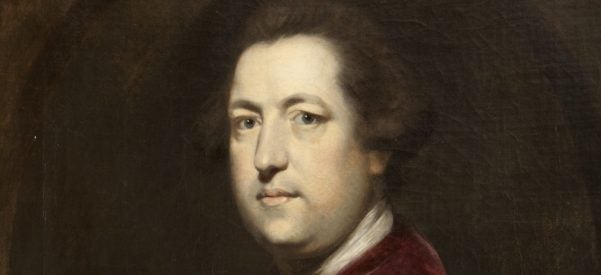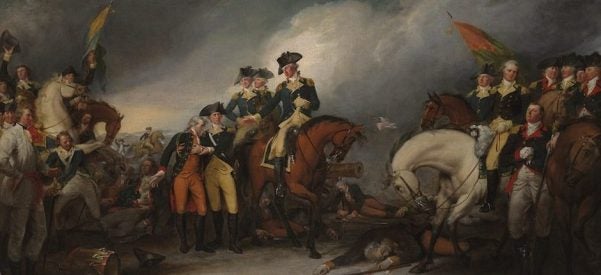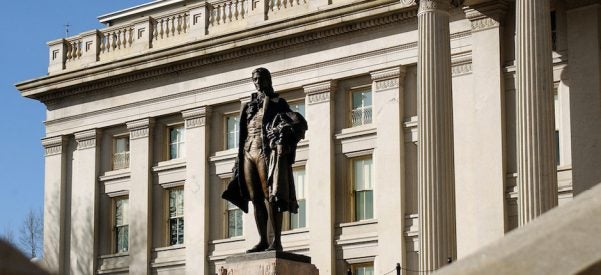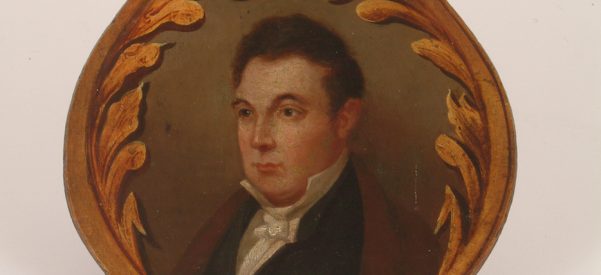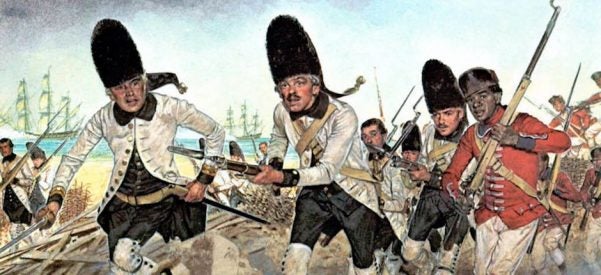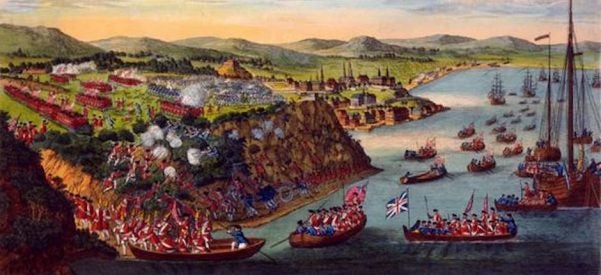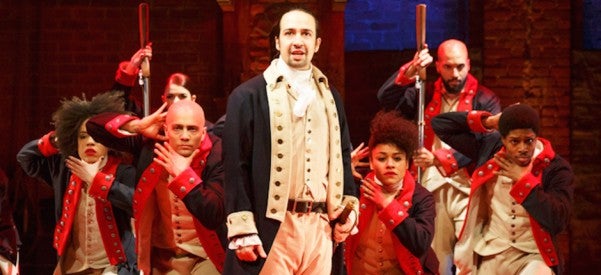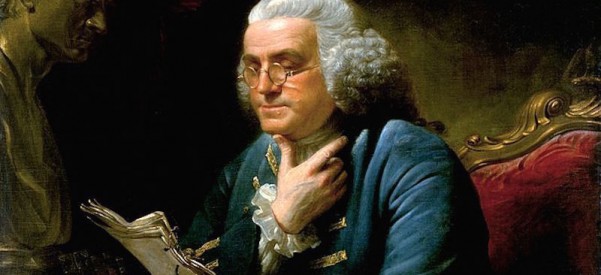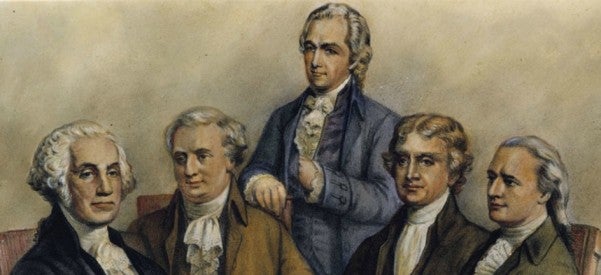Explore
: American Revolution
The British Chancellor of the Exchequer and His Soldier Sibling Pushed the Interests of the Empire at the Expense of Loyal Colonialists
By Patrick Griffin
May 31, 2018
Americans normally see our Revolution as the culmination of a long period of gestation during which a free people finally threw off their colonial shackles and became what they were destined to be. On the Fourth of July, we commemorate a moment in 1776 that encapsulates all that we as Americans were, are, and hope to be. We consider ourselves a nation bound together by God-given rights and a pact with each other and with our government that we will …
Read More >
Henry and Lucy Knox Sacrificed Family, Home, and Beliefs to Adopt Their New American Identity
By Phillip Hamilton
April 16, 2018
In late 1783, General Henry Knox, formerly a bookseller from Boston who had become a trusted military subordinate to George Washington, wrote the first draft of an address to be presented to the commander-in-chief by his officers. Their Revolution won, the Continental Army’s leaders wanted to express their heartfelt gratitude to the general, “under whose auspices,” as Knox wrote, “the Army have been led to glory and victory, and America to Freedom and Independence.” Young Knox also urged his comrades …
Read More >
By Shielding British Loyalists From Persecution, the Founder Elevated Principles Over Prejudice
By Kate Elizabeth Brown
March 15, 2018
The struggles of America’s cultural outsiders to be included in the country—in the face of disparagement, exclusion, or punishment—are as old as the nation. And, as Alexander Hamilton discovered in the 1770s and 1780s, they cut to the core of what it means to be American.
Before Hamilton reached his political apotheosis in George Washington’s cabinet, he immigrated to the mainland North American colonies from Nevis, an island in the British West Indies. Like his contemporaries Washington and Thomas Jefferson, Hamilton …
Read More >
The Marquis de Lafayette's Name Graces More City Parks and Streets Than Perhaps Any Other Foreigner
By Laura Auricchio
June 22, 2017
If you live in the United States, you’ve probably come across a county, city, street, park, school, shop, or restaurant named for Gilbert du Motier, Marquis de Lafayette (1757-1834), the most beloved French hero of the American Revolution. In New York City, my home town, I’ve spotted three different Lafayette Avenues, one Lafayette Street, a Lafayette playground, and four public sculptures of the Marquis. Although there’s no official count, Lafayette probably has more American locations named for him than any …
Read More >
While the Marquis de LaFayette Gets a Share of the Glory, Names Like Gardoqui and Gálvez Are All But Forgotten
By Larrie D. Ferreiro
November 29, 2016
Americans like to think of our nation as exceptional in nature, a dramatic break from all that came before it. Being exceptional, it’s inconvenient to acknowledge that two European powers provided invaluable assistance in our struggle for independence from Britain. So we usually don’t. The American origin story thus has scrappy colonists fighting the British alone, with little outside help except for France’s Lafayette, and a cameo by General Rochambeau at the very end. But Americans could have never won …
Read More >
By Beating Back the French in 1759, British Colonials Defeated a Big Obstacle to Their Own Independence
By D. Peter MacLeod
August 2, 2016
You can go to Quebec City, about 100 miles from the nearest U.S. border crossing, for the spectacular scenery, fine dining, great museums, and strolls through neighborhoods that date to the beginning of the 17th century.
Or you can go for the American history. Those who know of the Battle of the Plains of Abraham—fought September 13, 1759 on a plain named for the early French settler Abraham Martin—often remember it as a fight between a French army commanded by Lieutenant …
Read More >
The Blood-Sucking Insect Has Played a Leading Role in the Rise and Fall of Empires Throughout History
By John R. McNeill
June 14, 2016
In recent months, millions of Aedes aegypti mosquitoes have been at work spreading the Zika virus in South and Central America. This summer, millions more, all capable of conveying the virus, will flit and bite throughout the southern U.S. Congress just approved funding to battle its spread. This is not the first time a mosquito-borne virus has broken loose in the Americas and it will not likely be the last. Indeed, mosquitoes and viruses have shaped the history of our …
Read More >
America's Founders Have Never Enjoyed More Sex Appeal, but the Hit Musical Cheats Audiences by Making Democracy Look Easy
By Nancy Isenberg
March 17, 2016
Hamilton is the hottest show on Broadway, filled with hip-hop songs, R&B rhythms, and tri-cornered hats. Its multi-racial cast portrays the pantheon of Revolutionary greats, and for many a starry-eyed critic this sing-along with the founders offers “a factually rigorous historical drama.” Those are the words of Jody Rosen in The New York Times, and he is not alone. As an academic who spent years studying Aaron Burr before producing a scholarly biography, I can say emphatically that rules of …
Read More >
The Enterprising Philadelphian Was a Longtime Royalist and a Late-Blooming Rebel Who Infused the American Project with English Ideals
By George Goodwin
March 3, 2016
Two hundred and fifty years ago, in February 1766, Benjamin Franklin, the most famous American in London, addressed the British House of Commons. His aim, which he achieved triumphantly, was to persuade Parliament to repeal the Stamp Act, the legislation that had usurped the power of the colonial assemblies and caused the first major breakdown in relations between Britain and its American colonies. Franklin was determined to heal the breach; unlike most British politicians, he understood the American continent’s vast …
Read More >
Always on the Go, Our Founding Fathers Waged Their War of Words From the Mahogany Mobile Devices of Their Time
By Bethanee Bemis
February 23, 2016
Delegate to the Continental Congress. Commander-in-chief of the Continental Army. General Washington’s aide-de-camp. Secretary of state. President of the United States. Secretary of the treasury. During their lifetimes, Thomas Jefferson, George Washington and Alexander Hamilton epitomized the role of American Founding Father, all of them heavily involved in the birth of the new United States and the shaping of its government and future. Between them, they performed some of the most important tasks in forming our nation, but for all …
Read More >


